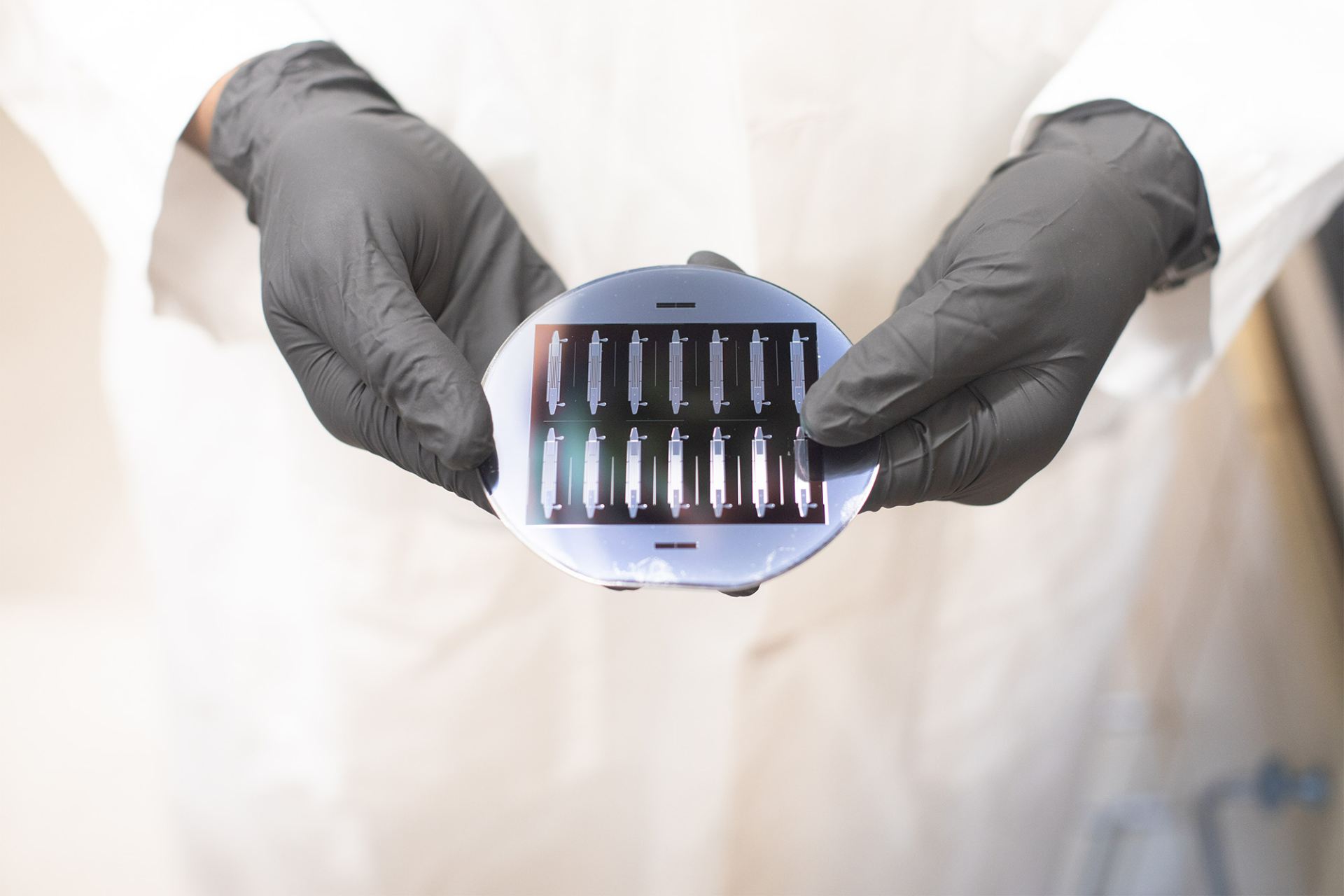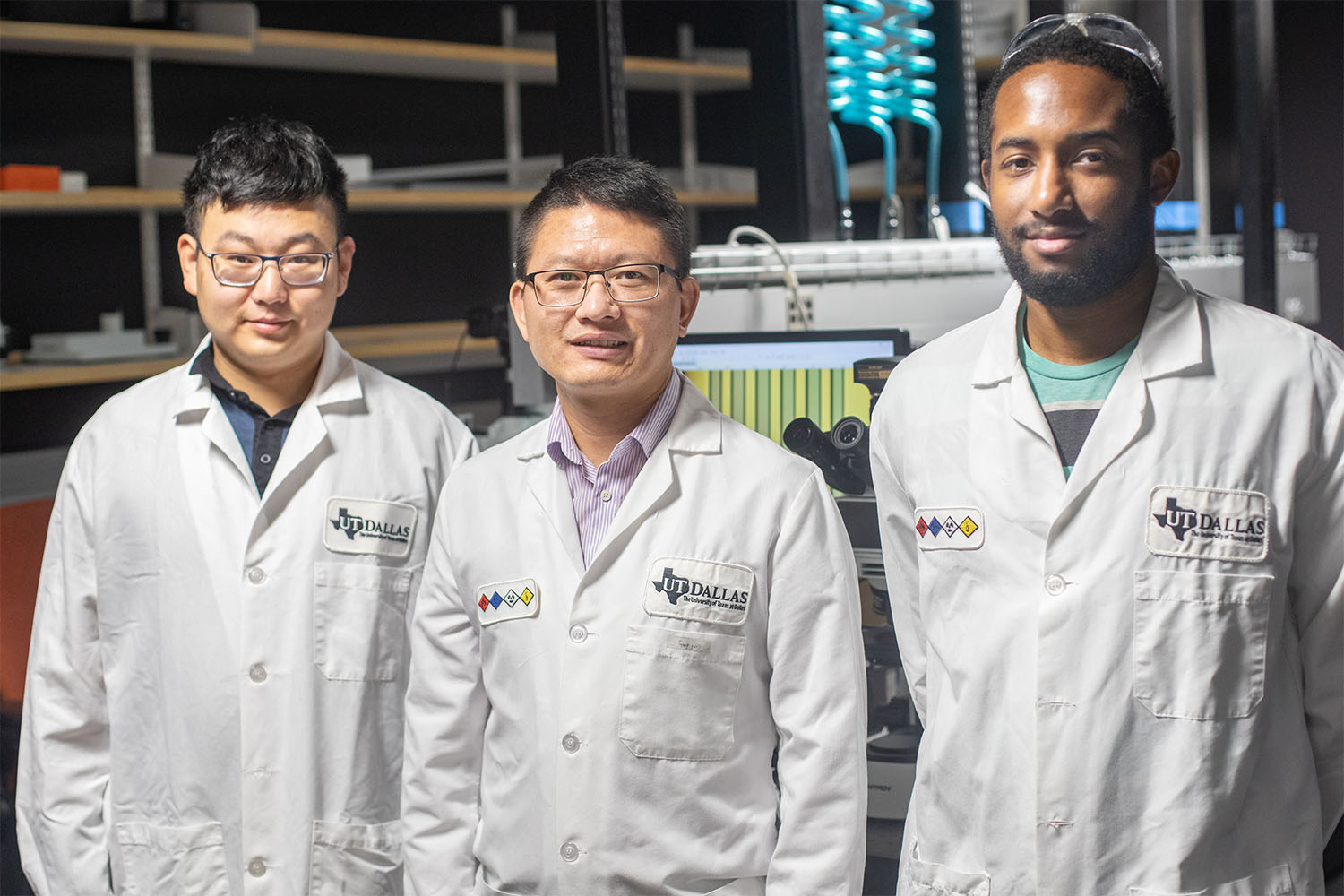Engineers Aim To Prevent 3D Integrated Circuits from Overheating
By: Kim Horner | Dec. 6, 2023

A University of Texas at Dallas researcher has received a Young Faculty Award from the Defense Advanced Research Projects Agency (DARPA) to support his research to prevent 3D integrated circuits from overheating.
Dr. Xianming “Simon” Dai, associate professor of mechanical engineering in the Erik Jonsson School of Engineering and Computer Science, will receive up to $1 million over three years. The grant funds exceptional early-career researchers whose innovations have the potential to enhance Department of Defense and national security capabilities.
Current technologies are approaching the limit of Moore’s law, which observes that the number of transistors in a 2D integrated circuit doubles every two years. A 2D chip consists of one layer of semiconductor material. The next generation chips, which are made of multiple stacked layers of semiconductor materials in one 3D package, show a great potential to provide faster computing power.

Before the semiconductor industry can transition to 3D microsystems, however, new technologies to cool the integrated circuits are needed. Stacking semiconductor chips, like multiple floors in a high-rise building, generates a large amount of heat in each layer of chip.
“In 3D microsystems, thermal management becomes a big challenge because we need innovative designs to remove heat directly from each layer at a small scale,” Dai said. “If we don’t manage the heat, the temperature will rise and reduce the lifetime of the device. To avoid overheating, only a small portion of the computing capacity is used currently.”
Dai is working to integrate microfluidic evaporative cooling into 3D chip design. The approach involves embedding microchannels in an integrated circuit to direct fluid through each layer of chip. The fluid then evaporates and removes heat, similar to the way sweat evaporates to help human bodies avoid overheating.
“Liquid-to-vapor phase-change heat transfer is a promising cooling solution,” Dai said. “Our group has built a solid foundation for evaporative cooling in the past decade. I am happy that it can contribute to 3D microsystems.”
The project will gain support from Dr. Rashaunda Henderson, the Eugene McDermott Professor of electrical engineering, on the design and manufacture of the multilayered chips. Henderson and her students have been studying integration and packaging of high-frequency circuits for a number of years.
“Liquid-to-vapor phase-change heat transfer is a promising cooling solution. Our group has built a solid foundation for evaporative cooling in the past decade. I am happy that it can contribute to 3D microsystems.”
Dr. Xianming “Simon” Dai, associate professor of mechanical engineering in the Erik Jonsson School of Engineering and Computer Science
“This research is important because 3D chip integration and packaging can lead to improvement in performance while keeping the system solution in the smallest possible package,” Henderson said. “Dr. Dai’s work to explore the overheating challenge associated with combining chips manufactured in different technologies will prove to advance thermal control in system design.”
Dai, who directs the Bioinspired Thermal Fluid Laboratory at UTD, has done extensive research to develop evaporative cooling technologies. His research has been funded by several sources, including a Faculty Early Career Development Program award from the National Science Foundation in 2021 and an award from the Army Research Office Young Investigator Program in 2019. Because of his group’s achievements, he received an Outstanding Early Career Award from the Micro Flow and Interfacial Phenomena Conference in 2021 and a Jonsson School faculty research award in 2022.
“Dr. Dai’s research has been funded by three federal agencies with different missions. Receiving one young investigator award is an honor; however, being recognized by three agencies is likely unique,” said Dr. Joseph J. Rencis, professor of practice and interim department head of mechanical engineering.
Media Contact:
Kim Horner, UT Dallas, 972-883-4463, kim.horner@utdallas.edu, or the Office of Media Relations, UT Dallas, (972) 883-2155, newscenter@utdallas.edu.





